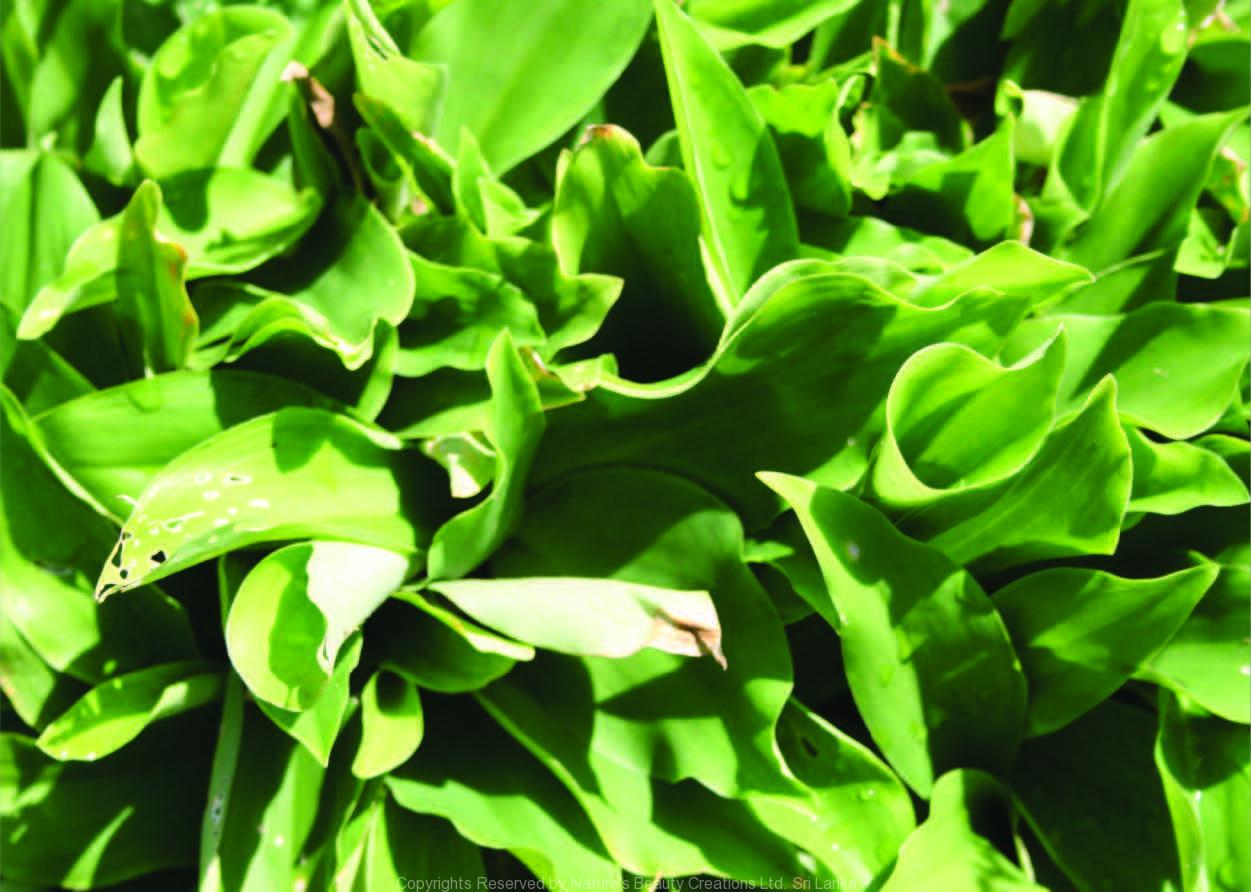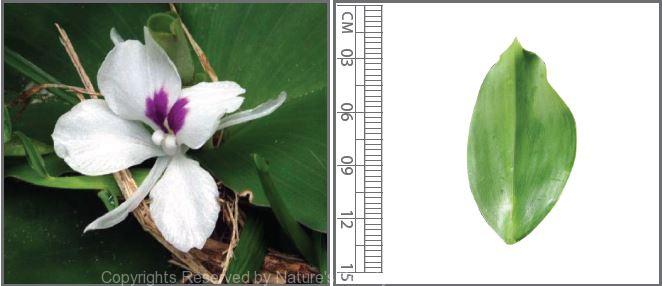

Traditional Knowledge
Useful plant parts :
Rhizome
Uses in traditional medicine :
- Dried sliced rhizome infusion is used as a mouthwash for bleeding gums
- Powdered rhizome mixed with King Coconut oil is applied on boils on the skin
- Applied externally for wound healing
- Used to remove dandruff or scales
- A stimulant, carminative and a diuretic
- Used in cough and pectoral ailments
- Used as a tonic
Scientific Research
Chemical constituents:
Cinnamic acid derivatives: ethyl cinnamate, ethyl –p-methoxycinnamate, sulfonated diarylheptanoid epimers: kaempsulfonic acids A and B, flavonoid: kaempferol from rhizome; terpenes: 1,8-cineole, γ-car-3-ene and borneol from essential oil of rhizome
Bioactivity :
Methanol extract of rhizome: antinociceptive; cinnamic acid derivatives: vasorelaxant, sedative, skin whitening, anti-inflammatory; alcoholic extract of plant: anti-inflammatory, analgaesic
Clinical:
References : Huang, L. et al., (2008), Sedative activity of hexane extract of Keampferia galanga L. and its active compounds, Journal of Ethnopharmacology, 120,123-125. Ko, H. J. et al., (2013), Hypopigmentary Effects of Ethyl P-Methoxycinnamate Isolated from Kaempferia galanga, Phytother Res. Othman, R. et al., (2006), Bioassay-guided isolation of a vasorelaxant active compound from Kaempferia galanga L., Phytomedicine, 13, 61-66. Ridtitid, W. et al., (2008), Antinociceptive activity of the methanolic extract of Kaempferia galanga Linn. in experimental animals, Journal of Ethnopharmacology, 118, 225-230. Shaalan, E. A. et al., (2005), A review of botanical phytochemicals with mosquitocidal potential, Environment International, 31, 1149-1166. Tian, J. et al., (2004), Study of the interaction of kaempferol with bovine serum albumin, Journal of Molecular Structure, 691, 197-202. Umar, M. I. et al., (2012), Bioactivity-guided isolation of ethyl-p- methoxycinnamate, an anti-inflammatory constituent from Kaempferia galanga L. extracts, Molecules, 17(7), 8720-34. Vittalrao, A. M. et al., (2011), Evaluation of antiinflammatory and analgesic activities of alcoholic extract of Kaempferia galanga in rats, Indian J Physiol Pharmacol, 55(1), 13-24 . Wang, F. L. et al., (2013), A pair of sulfonated diarylheptanoid epimers from Kaempferia galanga, Chin J Nat Med, 11(2), 171-6. Wong, K. C. et al.,(1992), Compositon of the essential oil of rhizomes of kaempferia galanga L., Flavour and Fragrance Journal, 7(5), 263-266.
Copyrights Reserved By
Natures Beauty Creations



